When you take out an auto loan, your interest rate is typically fixed. However, there might also be the option of a variable interest rate.
Most consumers will choose a fixed rate for their auto loan financing because it offers predictability and stability when budgeting for their monthly payments. Fixed rates are also provided by more lenders, banks and credit unions than variable rates.
However, a variable interest rate could also offer some benefits, especially if interest rates are low when you first take out your loan. In addition, variable rates are potentially advantageous if you don’t plan to keep the vehicle long-term or don’t plan on holding the loan for an extended period.
Here’s what you need to know about both options.
What Are Fixed-Rate Auto Loans and Their Benefits?
A fixed-rate auto loan is based on an interest rate that does not change over the life of a loan. This applies to new loans and those who refinance their car loans. This type of interest rate is the most popular for car loans and is often used for mortgages and personal loans as well.
One of the best benefits of a fixed interest rate is that it makes budgeting easier. You know exactly how much your monthly payment will be, so you can plan accordingly. This predictability can be a big help when trying to add a second vehicle to your household, take on other large financial obligations or simply make ends meet.

Another benefit of a fixed interest rate is that it protects you from changes in the market. You’re locked in at the lower rate if interest rates go up. But, on the other hand, if rates go down, you’re still stuck with the same payments and forfeit those potential savings.
That said, the biggest downside of a fixed interest rate is that you might end up paying more in interest over time if rates drop, especially if locked in at a higher-than-average rate to begin with. For example, according to research, Americans are paying up to 25 % more for their car loans than they were 10 years ago. So it’s essential to be informed, so you can make the best decision for your individual circumstances. If you do have a fixed rate car loan and the interest rates drop, you can always look into refinancing to lower your interest rate.
What Are Variable-Rate Auto Loans and Their Benefits?
A variable-rate auto loan is based on an interest rate that can change over time in response to market conditions. This movement is tied to an index or benchmark, such as the prime rate. Variable interest rates are also called adjustable interest rates and floating interest rates.
The biggest benefit of a variable interest rate is that it could save you money. When interest rates are low, you could get a lower monthly payment. Additionally, you can take advantage of falling interest rates without having to refinance. However, keep in mind that refinancing could still be an option. If that interests you, check with a refinance car loan calculator to see how much you could save.
If interest rates are unusually high when you purchase your vehicle and are predicted to fall, you might want to consider a variable-rate loan. In this case, you would be “betting” that interest rates will go down, which could save you money in the long run. This would require following governmental interest rate statistics and having both a sense of the market and an understanding of the risks.

Of course, the biggest downside of a variable interest rate is that it could go up, resulting in a higher monthly payment. If this happens and you can’t afford the new payment, you might be forced to sell the car or default on the loan, which could hurt your credit score.
In addition, if rates rise sharply and you can still afford payments, you could end up with negative equity, where you owe more on your loan than the car is worth.
Nonetheless, a variable interest rate could be a good choice if you’re planning on selling the car or refinancing the loan within a few years, and interest rates are both low and steady. It could also be a good option if you’re comfortable with a little more risk in exchange for the potential to save money.
How Do You Know Which One Is Right for You?
The best way to decide whether a fixed or variable interest rate is right for you is to consider your plans for the future. For example, a fixed interest rate could be the best option if you plan on keeping the car for a long time and the current interest rates are low. This way, you lock in the low rate and don’t have to worry about market fluctuations.
On the other hand, if you’re not sure how long you’ll keep the car or if you think interest rates could go down, a variable interest rate could be the best option. However, remember that there’s more risk involved, so you need to be comfortable with that before choosing a variable interest rate.
Whichever option you decide to go for, be sure it’s the best fit for your individual circumstances.

